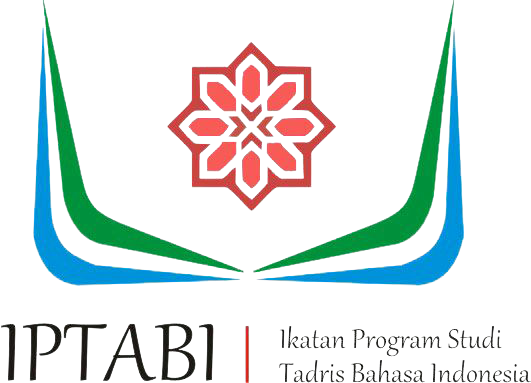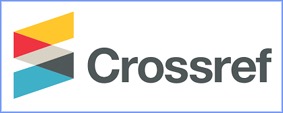Kualitas Buku Teks Bahasa Indonesia Kelas VII Terbitan Kemendikbud Kurikulum 2013 (Tinjauan Atas Aspek Kesesuaian)
DOI:
https://doi.org/10.29240/estetik.v1i1.514Abstract
Downloads
References
Altbach, P.G. 1991. Textbooks in American Society: Politics, Policy, and Pedagogy. Buffalo: SUNY Press.
Departemen Pendidikan Nasional, Pusat Perbukuan. 2005. Peraturan Menteri Pendidikan Nasional Nomor 11 tahun 2005 tentang Buku Teks Pelajaran
Hatikah, Tika dan Mulyanis. 2003. Berbahasa dan Sastra Indonesia Untuk SMUKelas II Semester 2. Jakarta: Grafindo Media Pratama.
Kurniati, Nia. 2011. Bahasa Indonesia Kebanggaanku Kelas IV. Bandung: Eka Cipta Setosa
Krippendorf, klaus. 1993. Buku Pelajaran Bahasa Indonesia SD. Jakarta: Grasindo.
Muslich, Mansur. 2010. Text Book Writing: Dasar – Dasar Pemahaman, Penulisan, dan Pemakaian Buku Teks. Yogyakarta: Ar-Ruzz Media.
Muzakir.2010. Penulisan Buku Teks Yang Berkualitas (artikel jurnal online).http//www.google.com/File.upi.ede/Direktori/FPBS/JUR. Diakses 22 November 2013, 20.00 WIB.
Panduan Penyusunan KTSP.2006 BNSP.
Prastowo, Andi. 2011. Panduan Kreatif Membuat Bahan Ajar Inovatif. Yogyakarta: Diva Press
Pusat Perbukuan. 2002. Pedoman Pengembangan Standar Perbukuan. Departemen Pendidikan Nasional
Sugiyono. 2007. Metode Artikel Kuantitatif, Kualitatif Dan R & D. Bandung: Alfabeta
Sukardi, 2008. Metodologi Artikel Pendidikan kompetensi dan Praktiknya. Jakarta: Bumi Angkasa
Downloads
Published
How to Cite
Issue
Section
Citation Check
License
Copyright (c) 2018 Agita Misriani

This work is licensed under a Creative Commons Attribution-NonCommercial-ShareAlike 4.0 International License.
Authors who publish with ESTETIK : Jurnal Bahasa Indonesia agree to the following terms:
- Authors retain copyright and grant the journal right of first publication with the work simultaneously licensed under a Creative Commons Attribution-NonCommercial-ShareAlike 4.0 International License (CC BY-NC-SA 4.0) that allows others to share the work with an acknowledgment of the work's authorship and initial publication in this journal.
- Authors are able to enter into separate, additional contractual arrangements for the non-exclusive distribution of the journal's published version of the work (e.g., post it to an institutional repository or publish it in a book), with an acknowledgment of its initial publication in this journal.
- Authors are permitted and encouraged to post their work online (e.g., in institutional repositories or on their website) prior to and during the submission process, as it can lead to productive exchanges, as well as earlier and greater citation of published work (See The Effect of Open Access).






